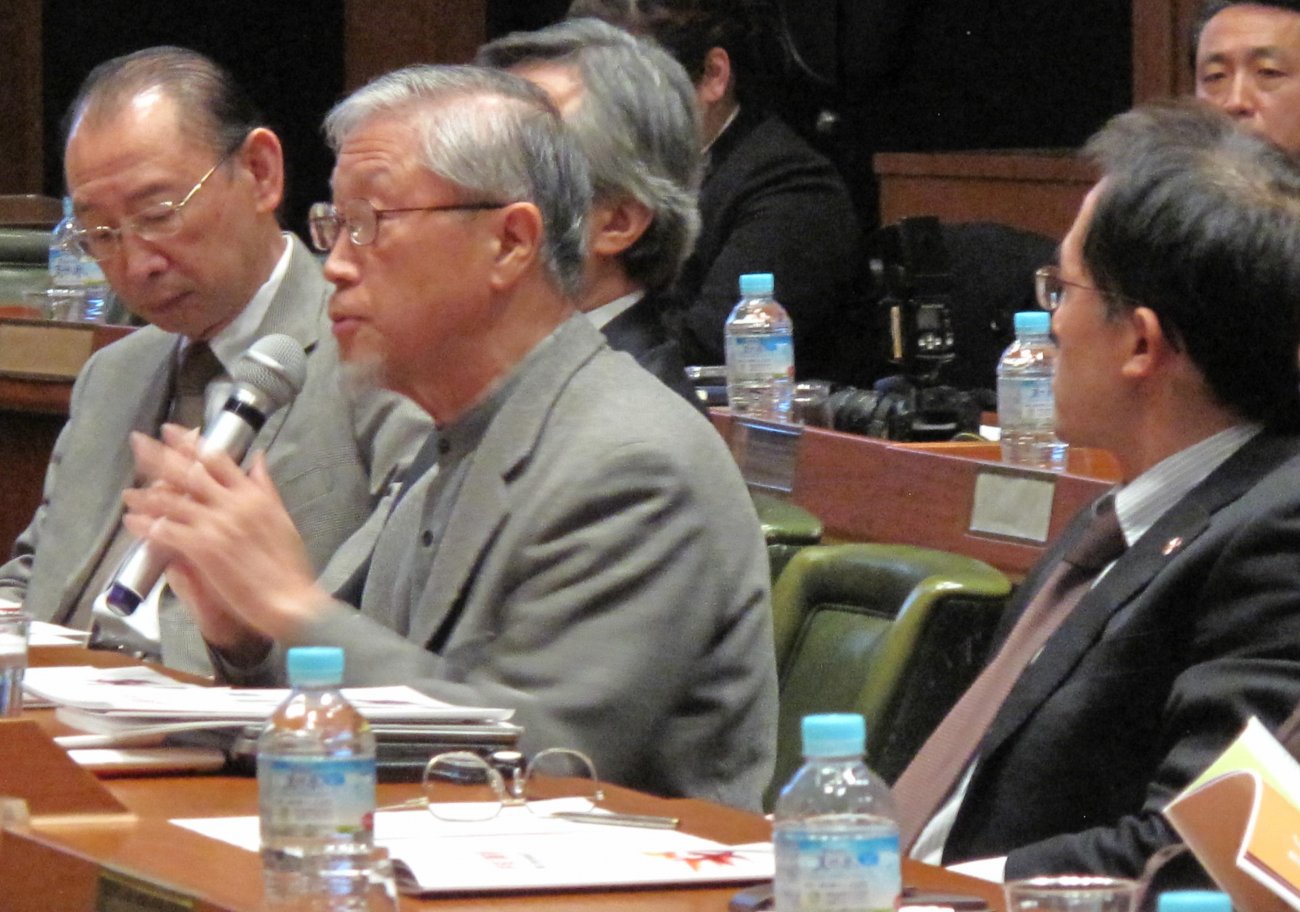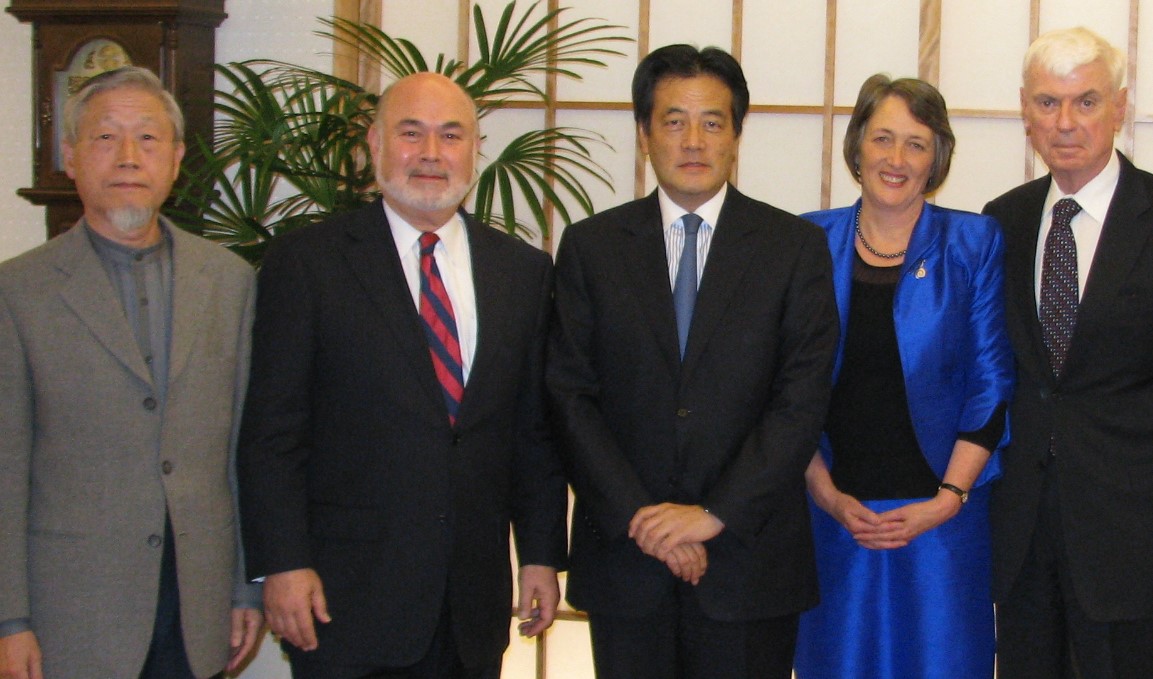Dr Hiromichi Umebayashi is one of the 2017 laureates of the Nuclear Free Future Award.
The award ceremony will be in Basel, Switzerland on Sep 15 during an international conference on Human Rights, Future Generations and Crimes in the Nuclear Age.
Dr Hiromichi Umebayashi is one of the 2017 laureates of the Nuclear Free Future Award.
The award ceremony will be in Basel, Switzerland on Sep 15 during an international conference on Human Rights, Future Generations and Crimes in the Nuclear Age.
PNND congratulates Dr Hiromichi Umebayashi, our East Asia Coordinator, for being one of the winners of the prestigious 2017 Nuclear Free Future Award.
Previous recipients have included Helen Clark (former Prime Minister of New Zealand and Head of the UN Development Program), Tony de Brum (former Foreign Minister of the Marshall Islands), Ambassador Alexander Kmentt (Austria), Motarilavoa Hilda Lini (former Minister of Health for Vanuatu), Mordechai Vanunu (Israeli nuclear whistleblower), Nadezhda Kutepova and Natalia Manzurova (Chelyabinsk, Russia) and Jonathan Schell (USA).
“I am very pleased to receive the award for my efforts, especially for establishing a Northeast Asia Nuclear Weapon-Free Zone, but I think I should be modest because establishing such zone is an on-going endeavor being tackled by many players. I do hope this award will help strengthen people’s power as a whole toward that goal.”

In 1980, Dr. Umebayashi, a solid-state physicist, left his teaching post at the Tokyo Metropolitan Technical College in order to dedicate his life to achieving world peace and to eliminating nuclear weapons.
He founded the Peace Depot, a non-profit, independent peace research, education and information institution, which under his leadership has been instrumental in a number of successful initiatives, including the establishment of PNND Japan as a cross-party body of influential parliamentarians, and the development of a ‘3+3’ proposal for a North East Asian Nuclear Weapon Free Zone (NEA NWFZ).
NE Asia includes three nuclear armed States – China, Russia and North Korea. The USA also has a nuclear weapons presence in the region by providing extended nuclear deterrence relationships with Japan and South Korea.
The NWFZ proposal developed by Dr Umebayashi would prohibit nuclear weapons in North Korea, Japan and South Korea, and require China, Russia and the United States to respect the Zone and to guarantee not to use nuclear weapons against those three states.
The proposal has a much higher chance of success than most other proposals and actions to denuclearise the Korean Peninsula because it addresses security concerns of all six states, and because it calls for lowering the role of nuclear weapons by all of them. (See Nuclear sabre-rattling in North East Asia: Can Godzilla be tamed?)
Dr Umebayashi has built cross-party support for the proposal from Japanese and Korean parliamentarians, including former foreign ministers. He has also built support from major civil society organizations, a range of academics and policy analysts, 545 Japanese heads of cities and 126 religious leaders.
He has also organized numerous international workshops and seminars to advance the idea of a NEA NWFZ, in Japan, South Korea, China and others, involving civil society organizations and academics.
When he directed the Research Center for Nuclear Weapons Abolition, Nagasaki University (RECNA) for recent three years, his focus was the Center’s contribution to the same goal.

Dr Umebayashi has also been instrumental in building dialogue and cooperation on other nuclear disarmament initiatives between different civil society organisations, academics, mayors, religious leaders and parliamentarians. This included cooperation on a joint statement of Japanese religious leaders and parliamentarians in April 2015.
The initiative resulted in ‘A Nuclear-Weapon-Free World: Our Common Good’, the international statement of mayors, parliamentarians and religious leaders which was launched in Hiroshima on the 70th anniversary of the nuclear bombing of the city, and which has been used to build support for nuclear disarmament initiatives globally, particularly at the United Nations.
Dr Umebayashi will receive the award on September 15, 2017 at a special ceremony in Basel, Switzerland as part of the international conference Human Rights, Future Generations and Crimes in the Nuclear Age.
AIR JORDAN